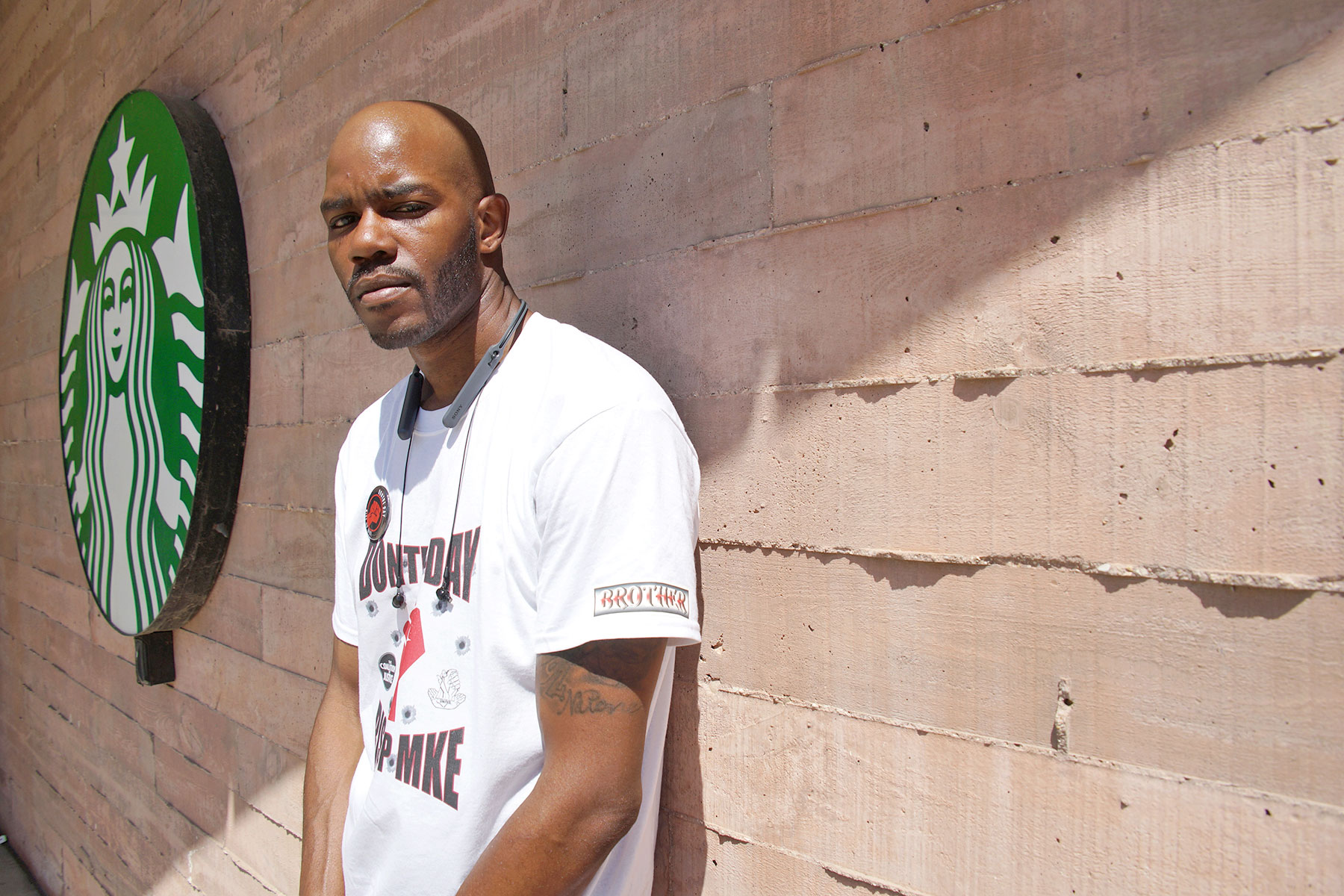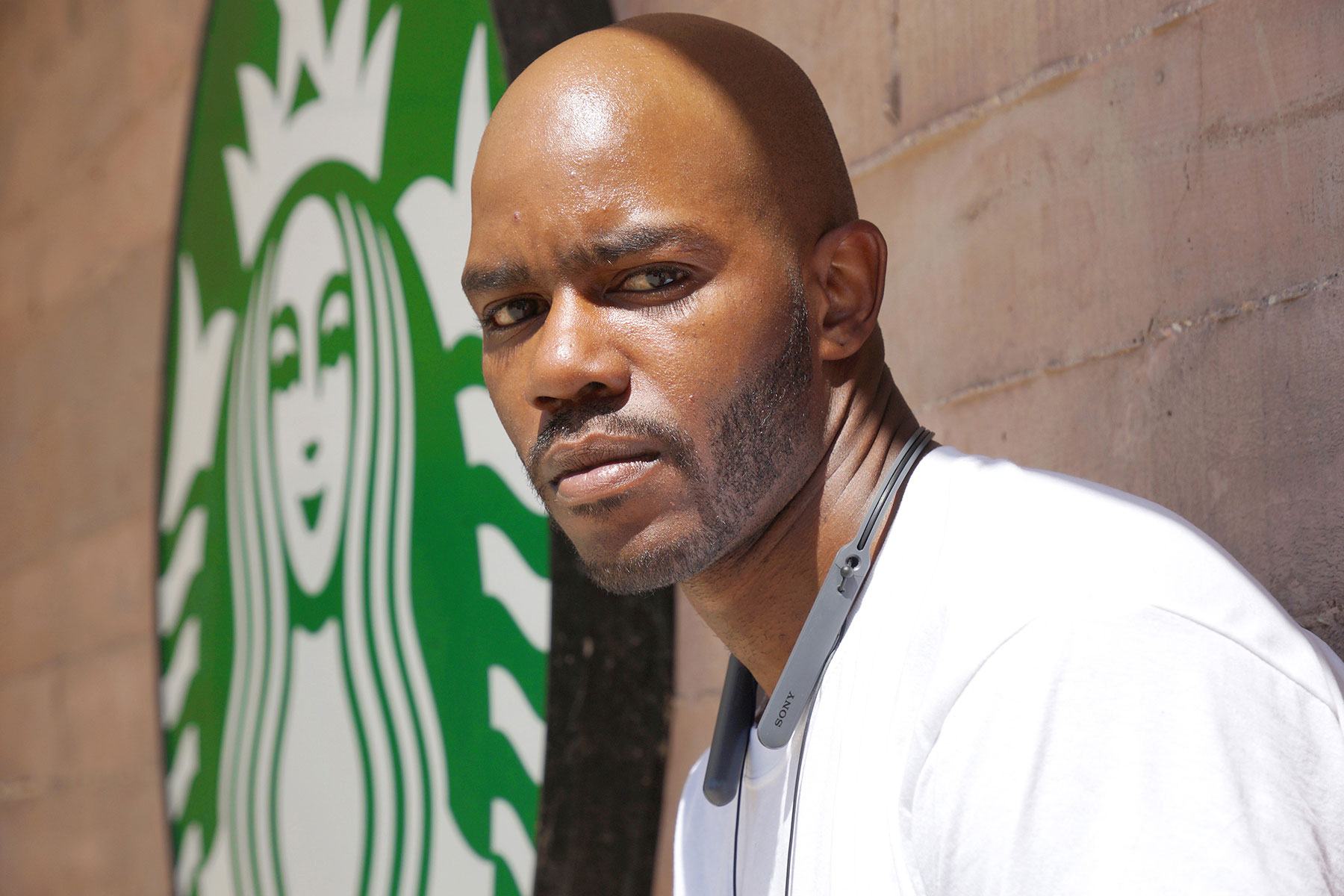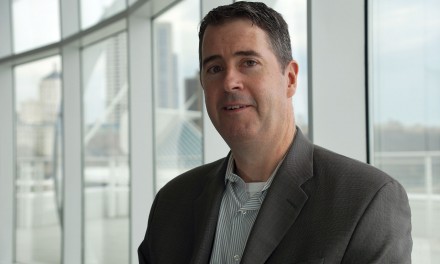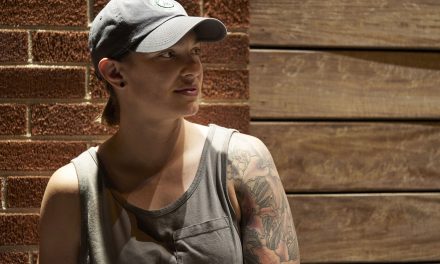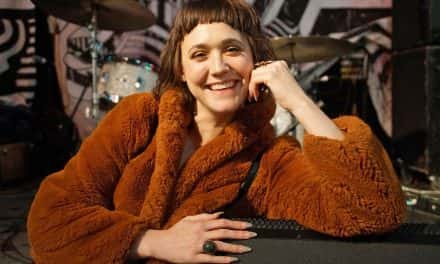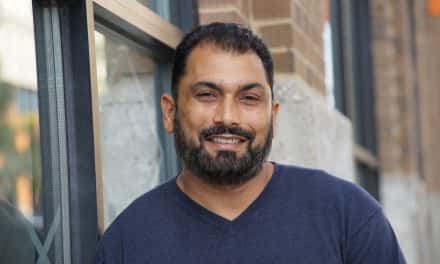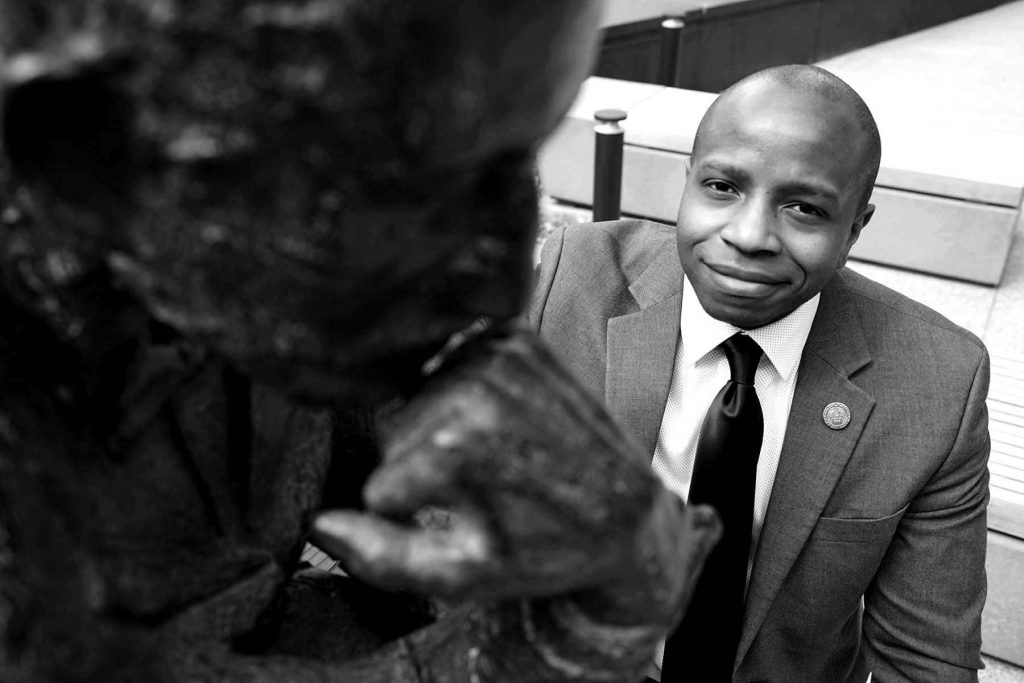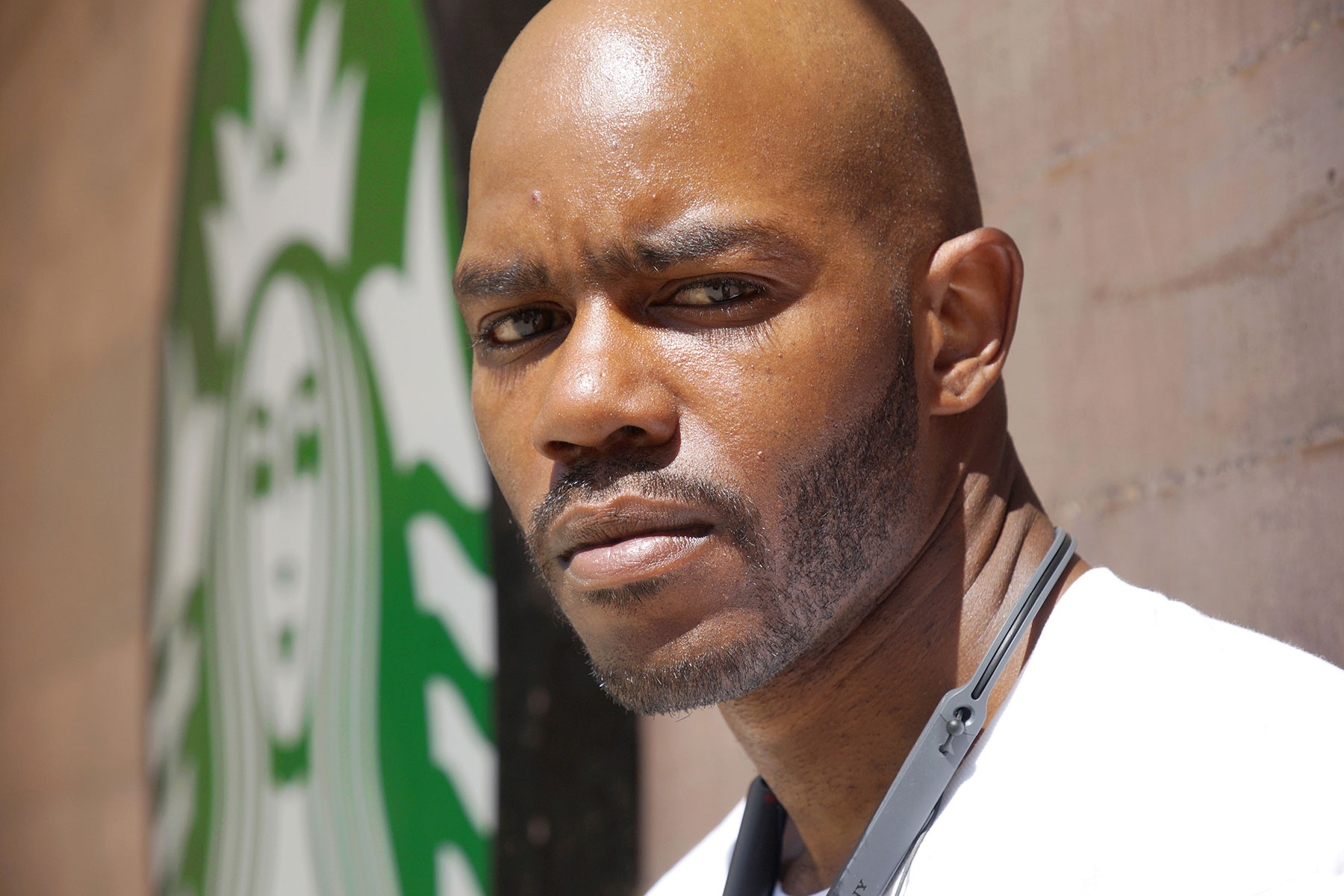
Nate Hamilton is the co-founder of the Coalition for Justice, an advocacy organization that has brought public attention to the death of his brother Dontre. He works to build a stronger Milwaukee community and strives to prevent other incidents from claiming the lives of men of color.
The fourth annual gathering in memory of Dontre was held in Red Arrow Park where his death occurred, and in recognition by the City of Milwaukee’s proclaimed that April 30 be known as Dontre Day in celebration of his life. The Milwaukee Independent attended the May 5 event, and had the chance to speak with Nate for this interview.
Q&A with Nate Hamilton
Milwaukee Independent: Over the past four years you have been asked many questions repeatedly, so what does no one ever ask that you wish they would?
Nate Hamilton: When I think about what I have gone through emotionally in this situation, sometimes I really want people to ask me, ‘What do you need? Do you need a break? Do you need relief? What can I give to you personally to help your healing?’
People ask about helping the movement, and how they can give to the cause. But not about my actual mental state, or even my own well-being. I hope that people can realize and show concern for that, because it is really basic.
It would be nice to hear someone ask how they can make things easier on me. It is very emotional work to be an organizer and activist. People don’t have to do something special for me, but at least for the people who constantly do stuff within the community. Ask them what they need, sometimes it is just an opportunity to take a break to heal and recover, sometimes it is an expression of appreciation for their effort.
I try to be the best ‘me’ that I can be. So I would like people to ask how they help me to be better. I would like people to take into consideration all the things outside of my family in my personal life, and really be concerned about the whole Nate Hamilton – and not just the activist or the brother of Dontre.
Milwaukee Independent: America celebrates the 4th of July but has not embraced Juneteenth Day as a commemoration for the end of the Civil War, so what does the holiday mean to you?
Nate Hamilton: I was in Juneteenth Day pageants growing up, and got involved with activities for Juneteenth. But I looked at it differently in my youth because I experienced the event as a celebration.
Now when I look at Juneteenth Day in Milwaukee, I know how hard it is to organize and the effort to be resourceful for the community. I also understand the historical struggle better, what it must have felt like as I experience my own types of struggles. Juneteenth is a day that can’t be compared to any other.
I want to see people continuously live just like it is Juneteenth, where they come together as a community, where they support each other, acknowledge our past and become better from it. That is what we want people to do on Dontre Day, understand the past and learn from it. We can use every day to inspire change, and hopefully make a difference in the attitudes of people about segregation and fairness.
We want the public to know us as a family, what we are trying to accomplish as a community, and Dontre Day adds another place where we can strive to create a diverse atmosphere, or strive to respect one another and make a better and safer Milwaukee.
Milwaukee Independent: It takes a lot of effort to build bridges across a hyper-segregated community, so how to you deal with the complicity of allies?
Nate Hamilton: That can be very frustrating, but I deal with it all the same way. Maybe the focus of what I say is a bit different. At the end of the day people want to be safe, they want to be respected, and they want that to be reciprocated throughout the community. Whether someone is an Alderman or an inner-city community organizer, we are still in this together. So we should support one another, and not look around at who is getting all the credit.
Every time we do a rally or a march, we want to make sure that everybody was looked at as a leader. People led themselves to the park, they led themselves to the rally. Because of that, they are passionate about something, so we should overlook that drive and motivation.
There is a little bit of leadership that they have within them, and I hope organizations start to work with these people to groom them as leaders. I don’t want followers, I want leaders to join in and feel like they are part of something, and have ownership.
I want other allies to come in with their leadership, whether they put in 10% or 100% effort, they can put in the level of talent they are capable of. And we will accept that to the fullest, instead of judging. We want everyone to be better and do better, and we will support them in any way.
If allies see something I am doing wrong, I expect them to come and hold me accountable, and also push me in a direction to improve. I have been one of those people who is really focused on self-correction. I want to be able to teach people how to be receptive to constructive criticism. That is something we have to face. We should be bold and answer the hard questions, and not only that but promoting action and understanding in the community is vital.
We need to push towards a better society, and be motivated and inspired to be our own greatest self. So we need leadership to convey that at all times. That is what I try to do on a day-to-day basis as a father, as a brother, and as a son, to convey the best type of person I can be. I can’t say I don’t fall short, but I learn from my mistakes and from others as well to be the best version of myself that I can be.
Milwaukee Independent: As a black man in Milwaukee, do you daily experience unconscious fears?
Nate Hamilton: What I dislike, because I’m so outgoing, is the kind of reactions I get if I see someone walking down the street. If I don’t personally say ‘hi’ to that person, at least I nod my head and acknowledge the individual
So it is offensive when people don’t do it back. A lot of times it’s white people, but it happens with black people to. What that tells me is that people aren’t happy with who they are. It tells me that society is so messed up at this point that no one can go around and smile, no one can go around and be proud of who they are.
I go around and work in all sorts of rural and suburban areas. When I open a door for white individuals to be polite, instead of acknowledging the courtesy they go through the other door. That hurts. I want to go up and talk to people, and find out who people are, I shouldn’t feel uncomfortable. I shouldn’t feel like they’re going to look at me crazy, or they’re going to show me the gun on their hip, or they’re gonna call me the N-word.
We still have a society where everyone is scared to approach people that look different. They’re scared to commit to a friendship, or a bond with other races.
Even with the police, I am still petrified of that contact. Yes, I have a good contact with the police, but I have bad contact with the police too. I figure there is a 50-50 chance in dealing with them about how the encounter will go, for or against me.
Are they going to respect me properly? Are they going to pull me over because I was actually violating the law and not just because of how I look? Those are small reflex fears, but I love my life and I refuse to live in a state of fear.
My goal is always to be good and respectful, and to learn how to comply, learn how to improve myself. If a person cannot respect that, they have to face down their own demons one day. So I just say ‘I love you officer, I love you person who hates me, and when you can become a better person, come find me and we can become better together.’
I want to be around people with self-respect, who know their worth and are comfortable with me no matter what my skin color, who radiate that brilliance.
Milwaukee Independent: Considering all the hardships you have experienced, what gives you hope?
Nate Hamilton: Events like Dontre Day that brings people together, that makes me feel hopeful. If someone can come out and spend some time at the park, then someone can come out and spend some time being a mentor, or building up another person. My focus is not to try and change the world, but to change one person at a time.
Once we start to change and improve the life of one person, then he becomes a father or she becomes a mother, and they start raising their children with personal values and good skills. Those children can then go out into the world and face hardships and overcome them, because their parents taught them how stand up and try harder after life pushes them down.
It also builds the basis of community, helping each other from the grassroots. Even if some people think they can make it on their own, we all need some help along the way. And I just want to make sure that the people we need and depend on are filled with love.
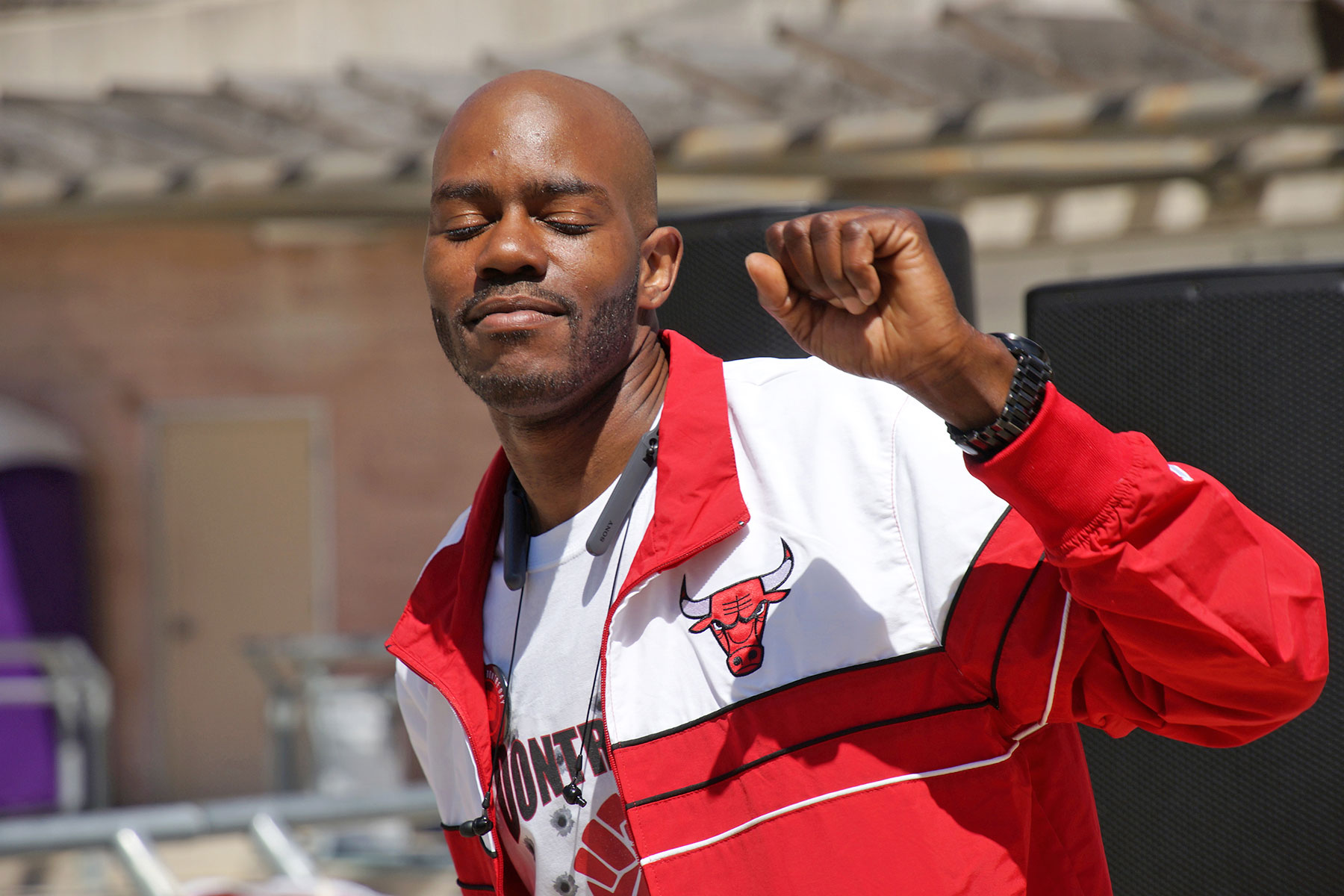
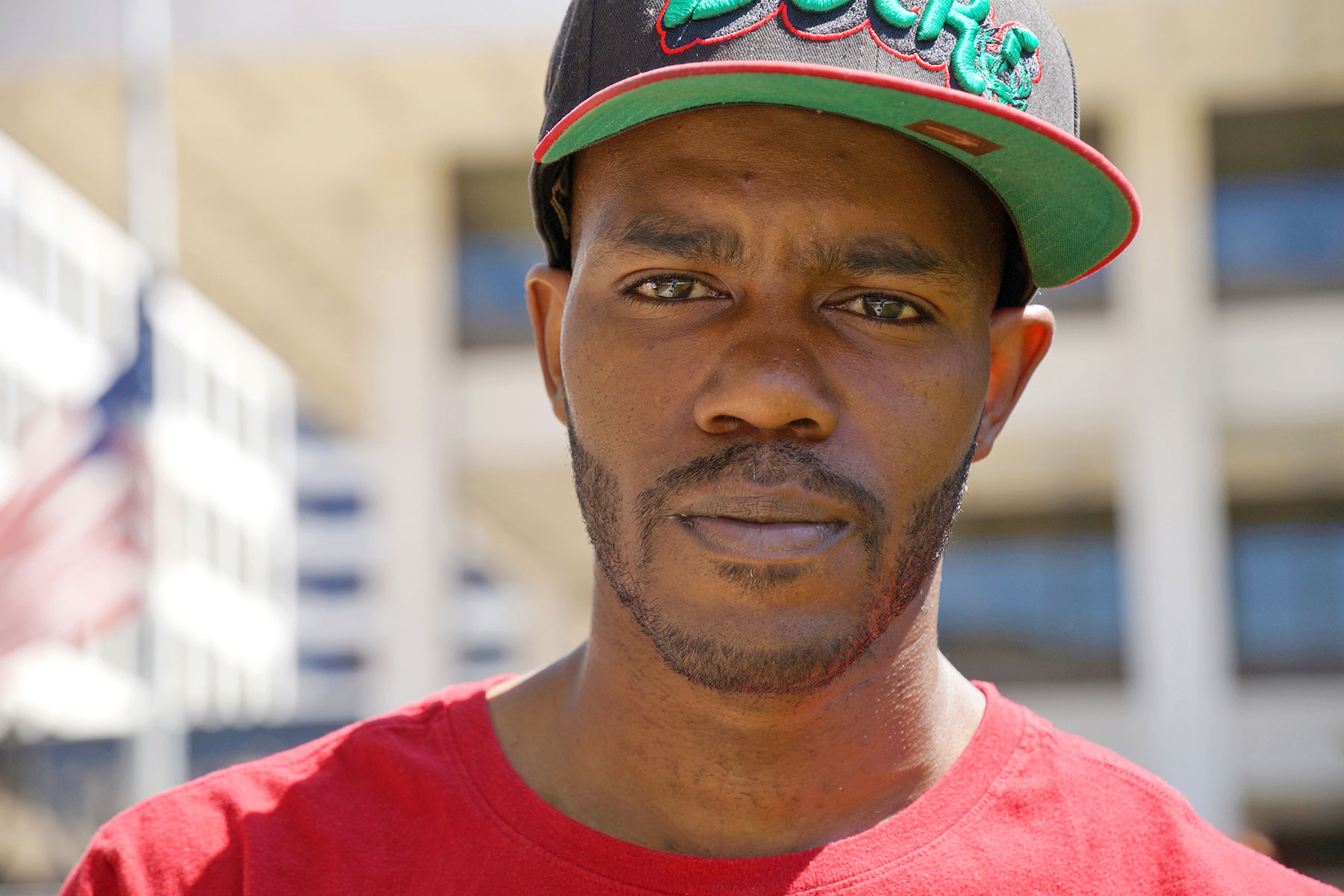
Lee Matz

